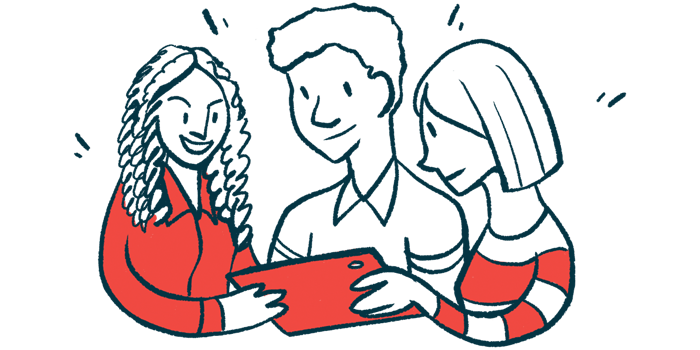Trial tests app that targets fatigue in sarcoidosis
Mobile app SPARC is short for Sarcoidosis Patient Resource and Companion
Written by |

A clinical trial is testing whether a smartphone app called SPARC, which prompts users to perform meditative breathing exercises and contains disease-relevant education modules, can help ease fatigue and improve life quality for people with sarcoidosis.
The study (NCT05230693), sponsored by the Medical University of South Carolina, is underway at the university, its lone site. The trial is expected to be completed in June.
The trial’s design was detailed in the study “Design and rationale of a pilot randomized clinical trial investigating the use of a mHealth app for sarcoidosis-associated fatigue,” published in Contemporary Clinical Trials Communications.
Fatigue, a feeling of tiredness or exhaustion, is reported by up to 80% of sarcoidosis patients, and it can be one of the most impactful on a person’s day-to-day life. Sarcoidosis-associated fatigue (SAF) has been associated with higher stress levels, depression and anxiety, and poor quality of life.
The interaction between SAF, negative mood states, and reduced physical activity in sarcoidosis patients results in a vicious cycle that ultimately leads to more symptoms and reduced quality of life.
“Various cognitive behavioral stress management programs have demonstrated that they reduce fatigue levels and improve [quality of life] in multiple chronic diseases; however, these programs have not been widely studied in sarcoidosis,” the researchers wrote.
A previous study suggested that group-delivered mindfulness meditation focused on diaphragmatic breathing (breathing awareness meditation, or BAM) could reduce fatigue in people with sarcoidosis.
Diaphragmatic breathing, also called belly breathing, is a type of deep breathing exercise that fully engages and strengthens the diaphragm, the major muscle used in breathing, which may improve lung efficiency.
“However, dissemination of traditional group-based programs is limited by availability and cost in the United States where sarcoidosis disproportionately impacts minorities with high poverty rates and reduced healthcare access,” the researchers wrote.
As such, delivering such interventions using a mobile phone may be more accessible to this patient population.
“Programs utilizing mobile Health (mHealth) have the potential to overcome geographic and financial barriers of traditional programs and have been shown to result in sustained improvements in health,” the researchers wrote.
Specific intent
With this in mind, researchers at Medical University of South Carolina developed an app specifically aiming to address stress and fatigue in sarcoidosis patients. They dubbed it SPARC, which is short for Sarcoidosis Patient Resource and Companion. The design process was based on published studies and centered on sarcoidosis patients and providers.
The SPARC app features a tool that prompts patients to perform breathing awareness meditation for 10 minutes twice daily. This type of deep breathing can slow the heart rate and help to relax the body’s “fight-or-flight” systems to reduce stress, and also serve as a form of respiratory therapy to bolster lung function.
The app provides prompts for BAM sessions, as well as inspirational messages to help encourage patients to stick with the intervention. It also contains educational resources and a portal where patients can communicate with their clinicians.
“The SPARC App has the potential to improve stress and fatigue in [sarcoidosis patients] by improving self-efficacy while overcoming the limitations and barriers of traditional treatment options,” the researchers wrote.
The trial intends to test the app in up to 50 adults with sarcoidosis who have elevated fatigue, defined as a score of 22 or higher on the Fatigue Assessment Scale. Participants must not have had a sarcoidosis exacerbation requiring treatment change in the three months prior to entering the trial, and must not have moderate-to-severe depression.
Participants were assigned randomly to either receive standard clinical care aiming to manage fatigue, or to have the SPARC app downloaded onto their phone with instructions to perform the included 10-minute BAM module twice daily for three months.
“Standard of care includes education on the potential causes of and solutions for sarcoidosis fatigue, as well as recommending exercise,” the team wrote.
Fitbits for all
All patients also will be equipped with Fitbit fitness trackers. These will be used mainly to objectively measure whether patients are performing BAM as instructed, since the trackers can detect whether heart rate slows at the time patients are prompted to perform the breathing exercises.
During the study, participants will undergo evaluations at one, three, and six months, and will receive $50 compensation for their time and effort at each evaluation.
The main goal of the trial is to assess the feasibility of the app-based intervention, as measured by how well patients stick with the app and follow the BAM sessions as directed. Standardized questionnaires will be administered to assess patients’ perspectives about their satisfaction with the app and its ease of use.
Assessments of fatigue severity, life quality, physical activity, and stress also will be collected for preliminary explorations of how SPARC affects patients’ lives.
“This study is the first investigation of the feasibility of a mHealth App in [sarcoidosis patients] and has great potential to make self-management interventions accessible to a population that has been underserved,” the researchers concluded.






